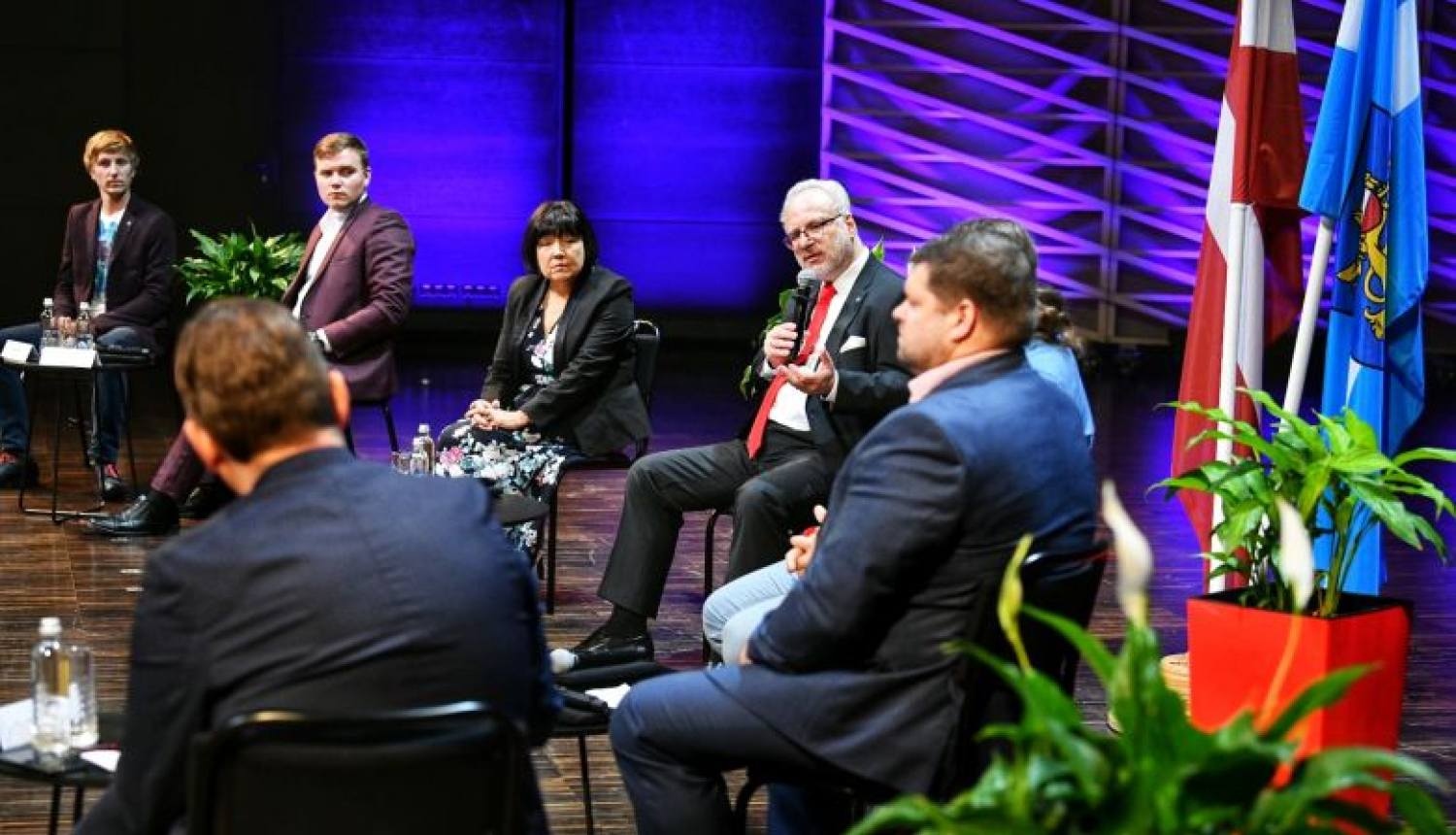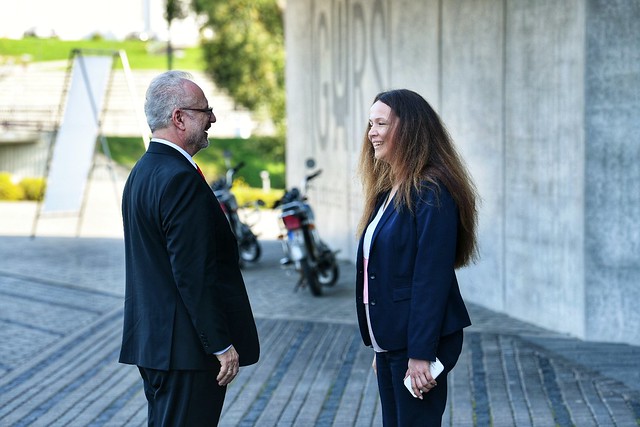At the opening of the discussion President of Latvia underlined: ‘Yesterday I handed the bill on historical Latvian lands to the Saeima, our parliament. Proposed law is based on a premise that Latvia was formed by uniting historical Latvian lands: Vidzeme, Latgale, Kurzeme, Sēlija and Zemgale. Latgale probably has the most radiant identity, which primarily manifests itself in its language and, of course, history and other areas. The purpose of the draft law that we are aiming to achieve is to promote the unique Latgalian identity. We want these cultural and historical regions to continue to thrive and develop, and it is the duty of the state to facilitate and support such efforts. If future generations will have the same access to national identity in all its diversity that we can appreciate today, we will be able to safely say that the law has fulfilled its goal. Soviet rule tried to deprive our identity of its diversity. It tried to standardise it. Now that 30 years have passed since we regained our independence, we need to start recognising our diversity again and realise that it is our national treasure. Diversity is what makes Latvia attractive, and it is the philosophical and political notion that underpins this law.’
President was asked whether the law will continue to be effective after the end of his tenure, and Egils Levits replied that it would depend on grassroots activities proposed by people, and whether they will feel that it is important to continue nurturing and developing their identity. ‘This law gives us an opportunity to influence local-level decisions about our future, identity and cultural space,’ said the President of Latvia.
Replying to a comment regarding potential of small countries to promote global processes, President Levits noted that ‘it is less efficient to be constantly focused only on global issues. We have the biggest impact on local level. Global change will always be a sum several local actions. For example, sorting of waste or green industries in Rēzekne will have impact on world climate, environmental protection and other processes. That is why it is important to ensure that local actions are efficient and contribute to global goals. We are inherently creative on many levels. Creativity makes us better. That is how we can live and experience the world more meaningfully.’
Other panellists joining President Levits for discussion ‘Latgalian identity: past, present and future’ included poet Anna Rancāne, Andris Ušpelis, keeper of Latgalian family pottery traditions and clay artist, Andris Slišāns, Director, Intangible Heritage Centre ‘Upīte’ (Stream), Aivars Bačkurs, Director of Dagda Region Ezernieki Community Centre, Director of Association Dagne, and Ēriks Zeps, radio host, member of the post-folk band Rikši.
Clay artist Andris Ušpelis underlined the diversity of Latgalian identity and continuity of regional craft traditions, while poet Anna Rancāne commented that ‘identity creates this primordial urge be someone, to feel equal among others. It is soothing. The escape from obscurity and oblivion’.
Aivars Bačkurs addressed the challenges to sustainability of Latgalian identity: ‘There are less and less young people whose main language is Latgalian. We must find solutions immediately. For example, we could strengthen informal education in Latgalian, otherwise we will lose this side of Latgalian identity. Future of Latgalian identity is in the hands of young people and children. They will be keepers of these traditions in future.’ Ēriks Zeps, too, asked the young people in the room how many of them use Latgalian on daily basis and urged them to speak Latgalian as a conscious effort to strengthen the Latgalian identity. Andris Slišāns also added: ‘We do not need a lot of money to keep Latgalian language going strong. We could, for example, start with direction signs in Latgalian. It does not cost much; it only takes will to begin.’ One of the participants of the discussion also mentioned that ‘Latgale does not have independent media platform that would help strengthen the Latgalian identity, language and media landscape’.





